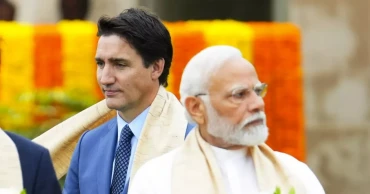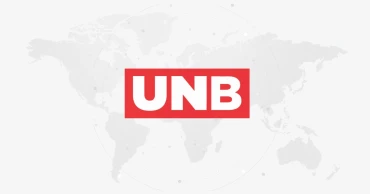Sikh separatist killing
India-Canada diplomatic row: Talks with India ‘in private,’ says Canadian Foreign Minister
Ottawa believes in having a “strong diplomatic footprint” in India, Canadian Foreign Minister Melanie Joly has said.
Canada Prime Minister Justin Trudeau has stated that Ottawa is not aiming to “escalate” tensions with India. His government has stated that “private” conversations are being held in order to preserve a “strong diplomatic footprint” in India, reports NDTV.
Also read: How India’s relations with Canada hit rock bottom
Trudeau addressed the media after the Financial Times reported that India wants 41 of the 62 Canadian diplomats out of the country after Trudeau alleged that the Indian government was involved in the killing of a Sikh separatist on Canadian soil, it said.
According to CBC News, in response to a question on whether Canada will request India to remove diplomats, he stated, “We’re not looking to escalate, as I’ve said, we’re going to be doing the work that matters in continuing to have constructive relations with India through this extremely difficult time.”
Also read: Despite dispute, Canada remains committed to its relationship with India: Trudeau
In a similar vein, Canadian Foreign Minister Melanie Joly stated that Ottawa believes in establishing a “strong diplomatic footprint” in India. “We are in contact with the government of India. We take Canadian diplomats’ safety very seriously, and we will continue to engage privately because we think that diplomatic conversations are best when they remain private,” she was quoted as saying by Global News, the report said.
“In moments of tensions – because indeed there are tensions between both our governments more than ever – it’s important that diplomats be on the ground, and that’s why we believe in the importance of having a strong diplomatic footprint in India,” she added.
Hardeep Singh Nijjar, a Canadian Sikh separatist leader involved with the Khalistan movement, was killed by masked gunmen in British Columbia in June. The Indian Unlawful Activities (Prevention) Act labelled the 45-year-old as a “terrorist,” the NDTV report said.
Trudeau accused India of being involved in Nijjar’s death a few weeks ago. “Canadian security agencies have been actively pursuing credible allegations of a potential link between agents of the Government of India and the killing of a Canadian citizen, Hardeep Singh Nijjar,” he said, adding, “Any involvement of a foreign government in the killing of a Canadian citizen on Canadian soil is an unacceptable violation of our sovereignty.”
Also read: India and Canada steer clear, in UN speeches, of their dispute over Sikh separatist leader’s killing
This sparked a diplomatic uproar. The claims were described as “absurd” and “motivated” by India. Following this, both Canada and India removed top ambassadors and issued travel cautions.
2 years ago
Canada’s interests currently pale in comparison to India’s massive strategic importance: BBC cites experts
Last week, Canadian Prime Minister Justin Trudeau took to the stage at the House of Commons and made an explosive announcement by accusing “agents of Indian government” of killing a Canadian citizen – a prominent Sikh separatist whom India has accused of terrorism – on Canadian soil.
The accusation, swiftly condemned and denied by New Delhi, has torpedoed the Indo-Canadian diplomatic relationship.
Following Trudeau’s public accusations, the diplomatic confrontation between both countries has reached an all-time high.
Also read: Intelligence from 'Five Eyes' nations helped Canada link India to Sikh’s killing, US diplomat says
As part of the confrontation, the North American country has expelled the “Canadian station chief of India’s intelligence agency, Research and Analysis Wing (RAW),” accusing him of interfering in Ottawa’s “internal affairs.”
Meanwhile, in a tit-for-tat move, India has also expelled a senior Canadian diplomat and later suspended all visa services for Canadian nationals.
Amid these diplomatic measures, one thing is very significant to note that both India and Canada are allies of the United States, or in other words, the West.
India is one of the most significant allies of the US and one of the important frontiers of Washington’s confrontation with Beijing.
Also read: How India’s relations with Canada hit rock bottom
In the midst of such cold geopolitical realities, one might wonder where Justin Trudeau stands on the world stage.
According to the BBC, Trudeau has been facing the cold reality of geopolitics “alone” in the past week.
“In the public eye at least, Trudeau has appeared to be left largely on his own as he goes toe to toe with India, one of the world’s fastest-growing economies, with a population 35 times bigger than Canada’s,” BBC reports.
It is worth noting that Canada has received the intelligence regarding New Delhi’s “spy ops” from Five Eyes intelligence alliance – made up of Australia, Canada, New Zealand, the United Kingdom and the United States.
Also read: India asks citizens to be careful if traveling to Canada as rift widens over Sikh leader’s death
However, according to BBC, Trudeau’s allies in the intelligence network have provided “seemingly boilerplate public statements, all stopping far short of full-throated support.”
UK Foreign Secretary James Cleverly said his country took “very seriously the things that Canada is saying.” Using nearly identical language, Australia said it was “deeply concerned” by the accusations.
Also read: Who was Hardeep Singh Nijjar, the Sikh activist whose killing has divided Canada and India?
Meanwhile, Ottawa’s southern neighbour, the United States, said it expects Delhi to cooperate with Ottawa in investigating the assassination.
Citing experts, BBC noted that Canada’s interests currently pale in comparison to India’s massive strategic importance.
“The US, the UK, and all these Western and Indo-Pacific allies have built a strategy that largely focuses on India, to be a bulwark and counterweight to China. That’s something they can’t afford to toss out the window,” Xavier Delgado, a researcher at the Wilson Centre’s Canada Institute told BBC. “The fact that they haven’t come out and rushed to Canada’s defence is indicative of the geopolitical reality,” he added.
Also read: Canada expels Indian diplomat as it investigates Sikh activist's killing
2 years ago



